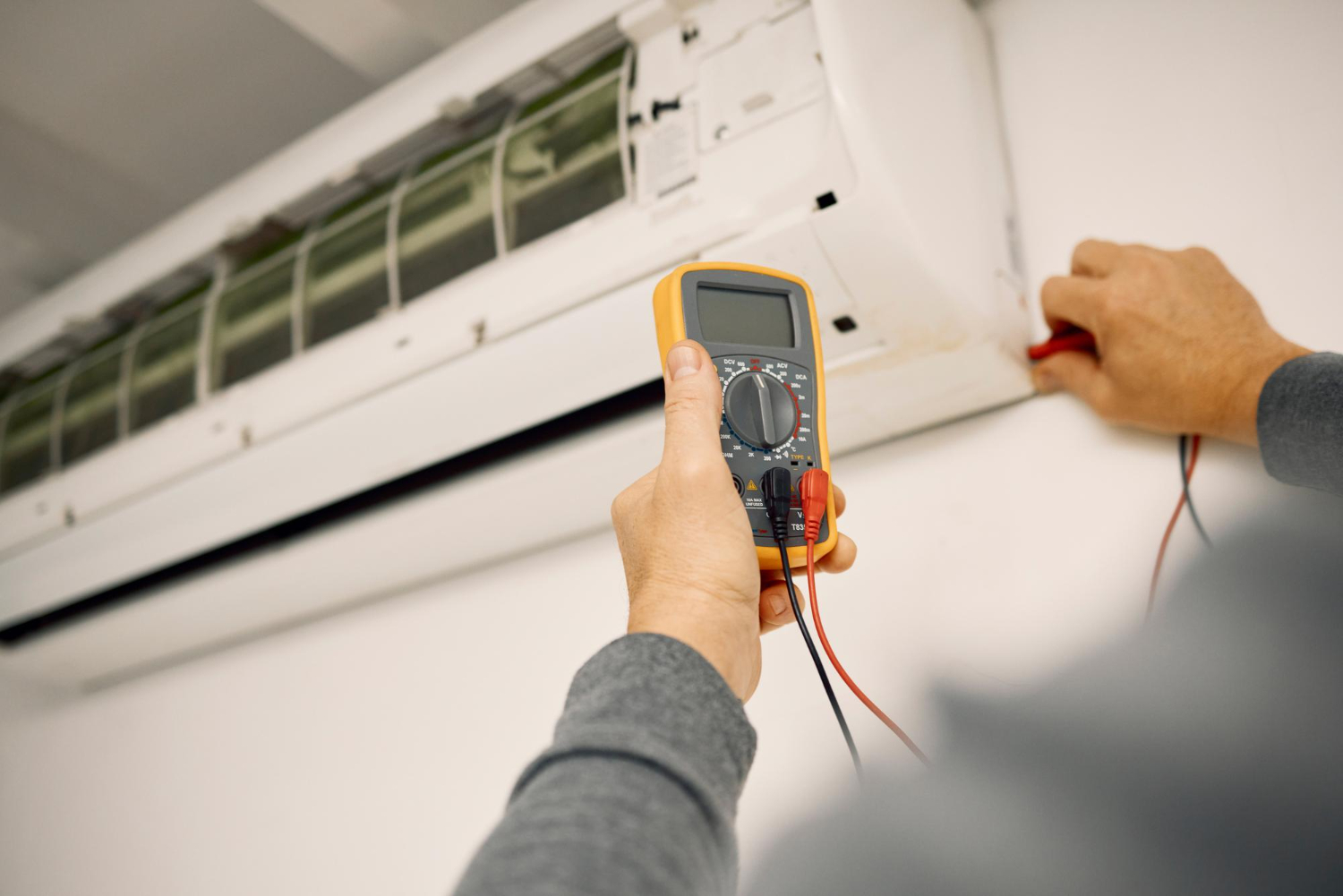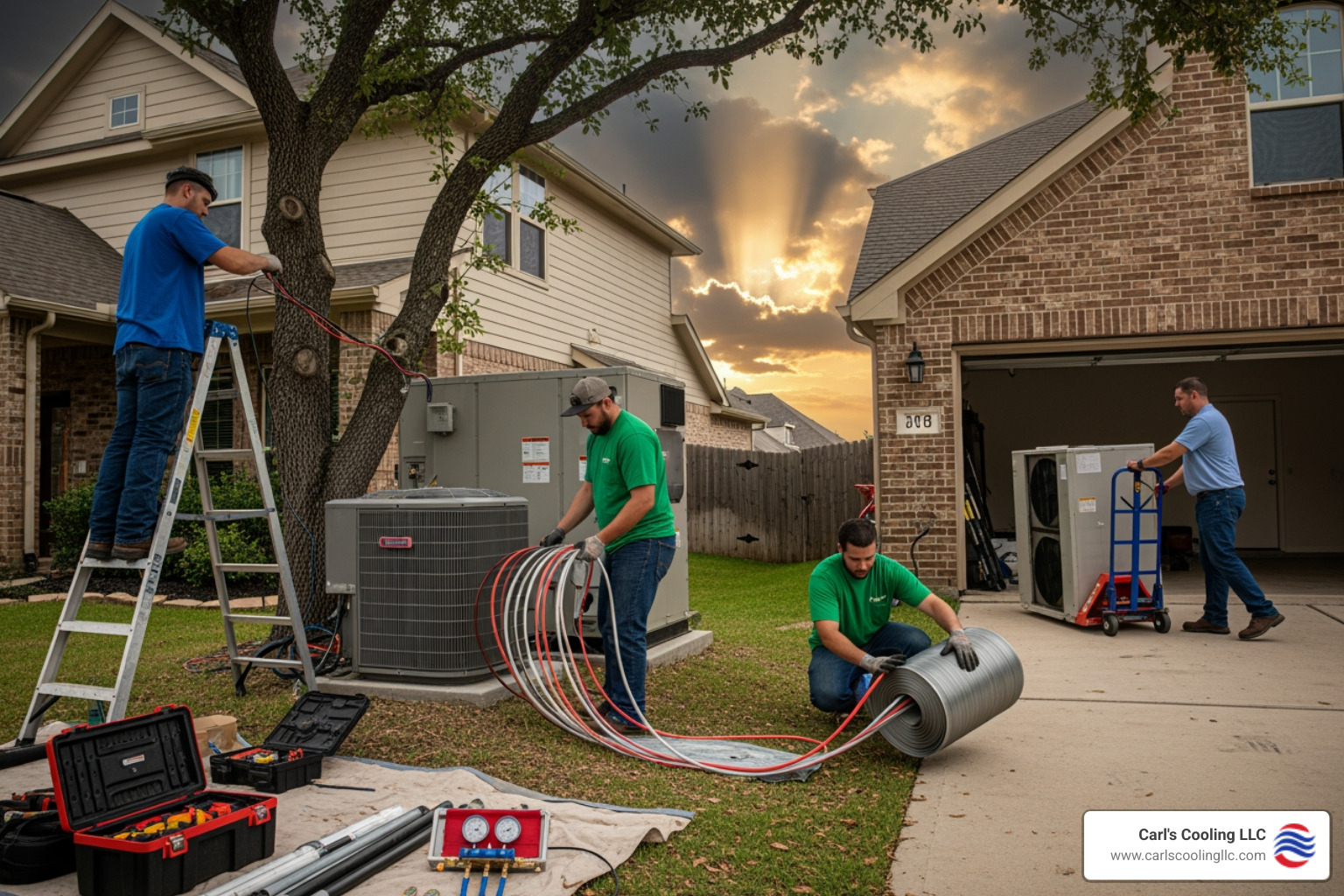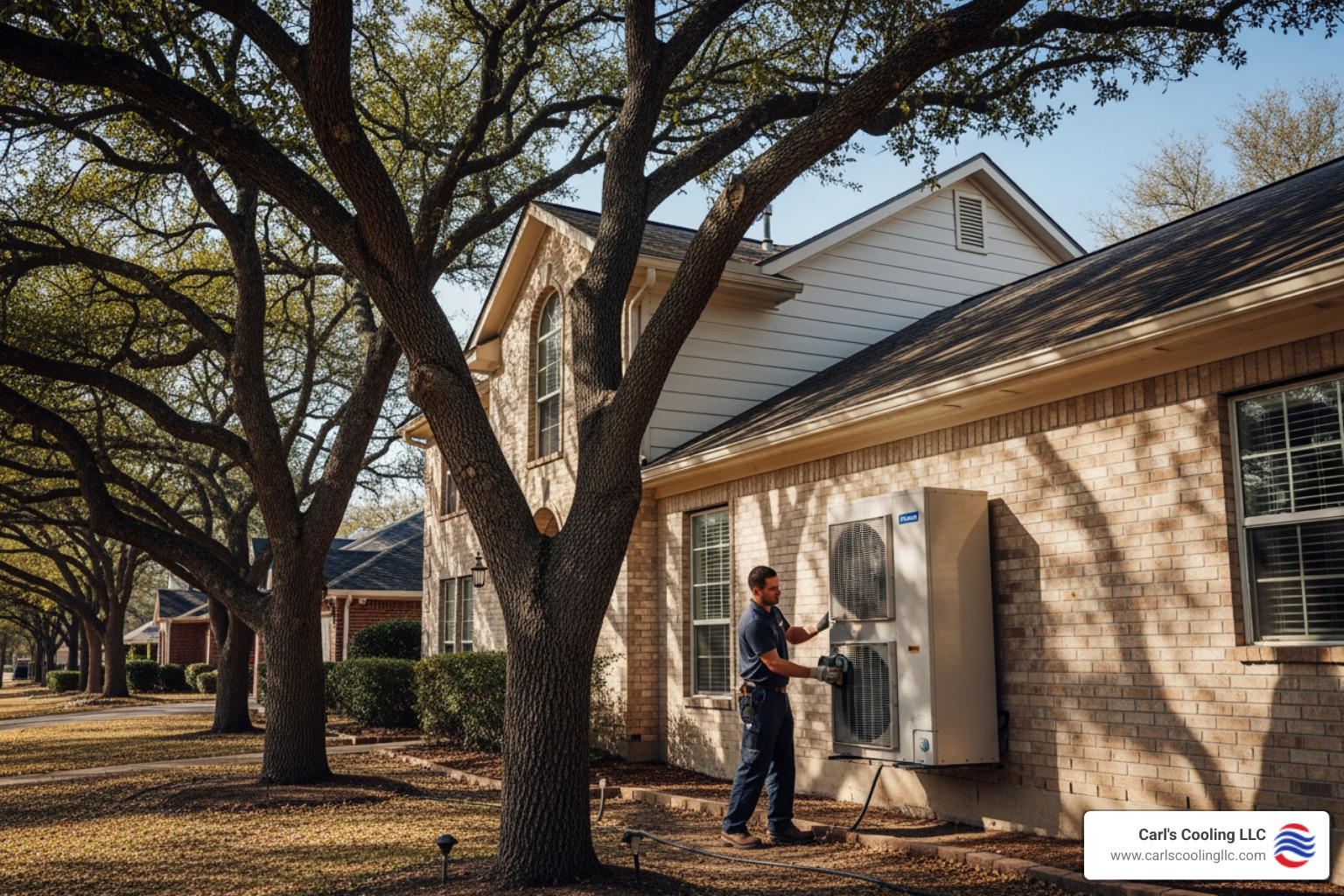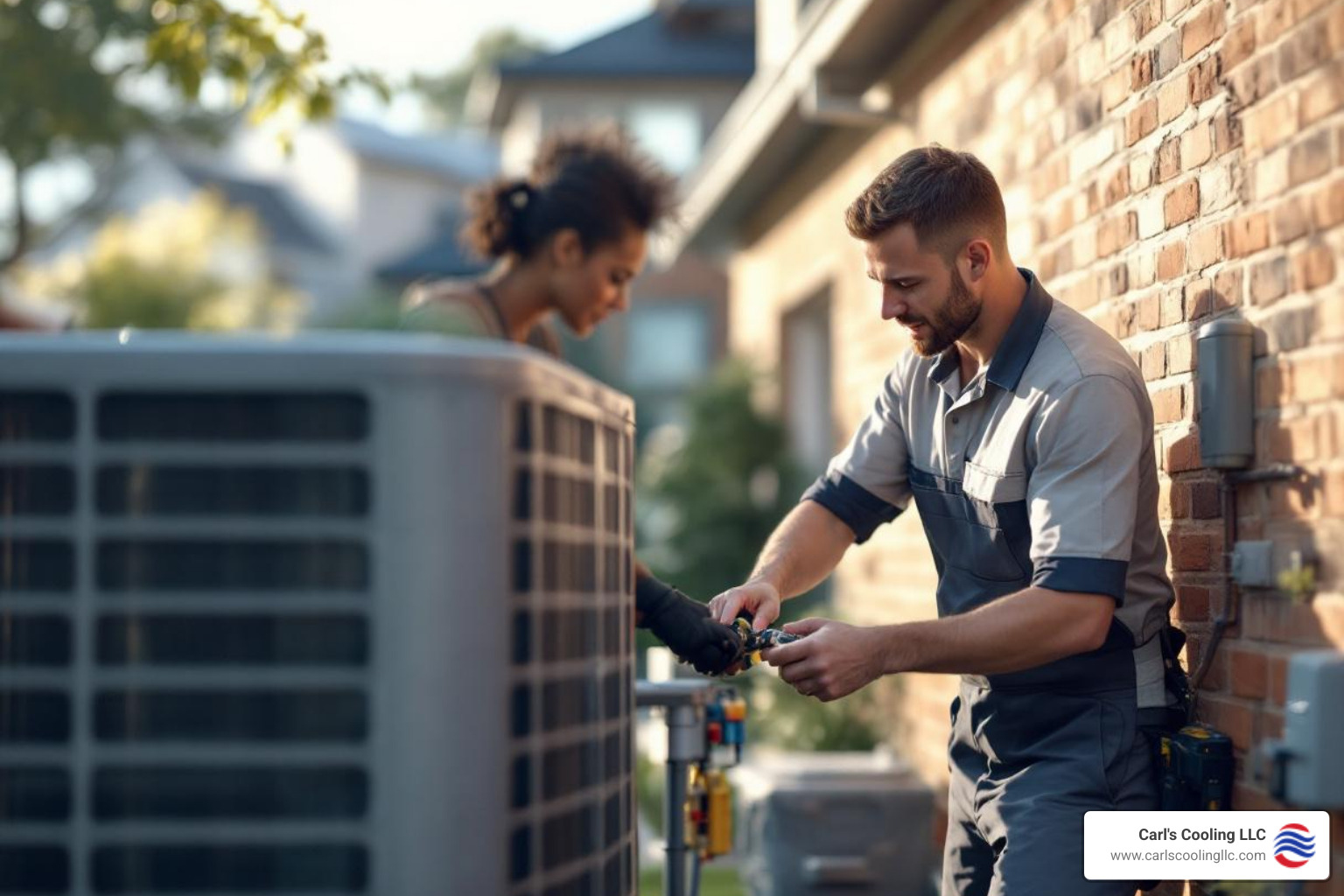AC systems are built to keep your home comfortable, especially through the hottest months of the year. But when the system suddenly stops working, the root cause can be more than a dirty filter or low refrigerant. Electrical problems inside an AC unit often go unnoticed until the system fails entirely, leaving you with rising indoor temperatures and no cool air. That’s when things become urgent, especially during a July afternoon in Willis.
Recognizing and understanding those electrical issues early can help prevent the system from shutting down when you need it the most. Blown fuses, faulty wiring, or a tripped breaker can all interrupt how your air conditioning unit functions. The tricky part is knowing whether the problem is temporary or risky enough to need professional help. That starts with identifying what an electrical problem looks like in the first place.
Understanding AC Electrical Problems
AC systems rely on a steady and secure flow of electricity to operate. If that flow gets disrupted, things can go wrong quickly. Even a small issue with wiring or circuit management can snowball into damage across your entire system. In many cases, these types of problems show early warning signs if you know what to look for.
Here are a few common causes of electrical issues in AC units:
- Loose or corroded wires
- Faulty capacitors
- Tripped circuit breakers or blown fuses
- Failing contactors or relays
- Poor installation or aging components
Most of these problems aren't visible without opening the unit and using proper equipment. Instead, homeowners in Willis notice symptoms that suggest something’s off. If there’s a burning smell coming from the vents, that could mean the wiring is overheating. If the system keeps turning off right after it starts, it may be short cycling due to an electrical control problem. Strange buzzing noises while the outdoor unit is running can also be linked to faulty components like a capacitor or contactor.
Another sign to watch for is when your thermostat seems to be working, but the indoor or outdoor unit doesn’t respond. This could point to a problem with the power running to one or both parts of the AC system. Power disruptions within the unit put stress on the motor and other connected parts, and that stress usually shortens the unit’s lifespan over time.
One common example involves a homeowner who noticed their indoor air handler was running, but no cool air was coming out. After checking, they realized the outdoor condenser wasn’t turning on at all. The issue turned out to be a failed capacitor in the outside unit, which blocked the whole cooling process because the motor couldn’t start. This kind of problem is often misdiagnosed without looking into electrical components.
Letting these signs go unchecked may lead to more serious repairs down the line. That’s why catching these symptoms early and acting on them makes a major difference.
Troubleshooting Steps for AC Electrical Problems
Some electrical issues may have a simple cause, but that doesn’t mean it’s safe to assume. You can take a few very basic steps to narrow down the issue, but the goal should be to pinpoint what might be wrong so you can describe it clearly to our technicians when they arrive.
Start by checking these areas:
1. Thermostat Settings
Make sure your thermostat is set to cool and not fan or heat. The temperature setting should be lower than the current indoor temperature. Also, check the display to confirm the unit has power. If it’s blank, the thermostat may have a power supply issue or dead batteries.
2. Circuit Breaker
Go to your breaker panel and check for tripped breakers. If the breaker for the AC system is off or sitting between on and off, flip it fully to the off position first, then turn it back on. If it trips again immediately, there’s likely an ongoing electrical problem in the system.
3. Condenser Disconnect Box
The outdoor unit usually has a disconnect box mounted nearby. This box needs a fuse or switch in the right position to supply power to the condenser. If that switch is off or damaged, the unit won’t run.
4. Wiring or Obvious Damage
Look for visible signs of worn or damaged wires near your indoor or outdoor units. If there’s any sign of melted insulation, burns, or moisture affecting the wiring, these are red flags.
These checks don’t replace the need for safe and correct repairs. They can help you know what to communicate when contacting a professional. If flipping the breaker or adjusting the thermostat doesn’t get things going again, it’s time to bring in our trained technicians.
When to Call Our Professionals
Even though some AC electrical problems may appear simple, most are more complicated than they look. Tools, training, and experience are needed to work safely around electrical systems. Trying to solve wiring problems or replace components can put your safety and your home at risk. That is why our technicians are here to handle the job the right way from the start.
Here are signs it's time to bring in our professionals for AC service in Willis:
- You hear loud buzzing or humming from the outdoor unit during startup
- Breakers trip repeatedly even after resetting
- AC turns on but shuts off within a minute of running
- The system doesn’t respond, even with thermostat changes
- There’s a persistent burning smell during operation
These issues often point to a defective part like a capacitor, relay switch, or internal wiring fault. Our technicians can isolate the issue quickly and take care of it before more damage happens. An overloaded circuit or damaged wire can lead to system failure, higher energy bills, and component damage that’s expensive to fix or replace. Professional diagnostic tools help pinpoint whether the problem is electrical or coming from another system component.
For example, if your AC is short cycling, it may not be the thermostat causing it. It could be a failing contactor that keeps breaking the electrical connection too quickly. In that case, replacing the thermostat wouldn’t make a difference. Our team looks at the full picture, so you don’t waste time or money on the wrong repairs.
Waiting to get help usually makes the problem worse. The sooner we inspect the system, the faster you’ll have your comfort back.
Preventive Maintenance to Avoid Electrical Problems
Once electrical issues are fixed, focused maintenance helps stop them from coming back. Most AC breakdowns during summer in Willis link back to wear and tear that wasn’t caught early. Regular service can improve safety, boost efficiency, and give you peace of mind during the hotter months.
Here are a few steps that help prevent future electrical problems:
- Schedule yearly AC inspections before summer heat peaks
- Have all wire connections and capacitors checked during each service
- Keep outdoor units clear of debris to protect airflow and wiring
- Replace older thermostat batteries each season
- Watch for early symptoms like odd smells, sounds, or slow cooling
Skipping these steps leaves your equipment vulnerable. Small electrical problems can hide in the system and come to the surface when heat and usage rise. If your unit is turning off too soon or running nonstop, it may already be showing signs of stress.
Keeping up with AC maintenance helps ensure that your system is safe and reliable. It also gives our professionals a chance to catch early warning signs before they affect comfort. Reliable performance depends on steady power, and every part of your system relies on clean, uninterrupted electrical flow.
Helping You Stay Cool During Willis Summers
Living in Willis means preparing your home to take on hot and humid summer days. AC systems work hard to deliver comfort when the heat rises, but electrical issues can take that comfort away fast. Knowing what to watch for, responding quickly when something’s wrong, and staying consistent with maintenance are key steps in keeping your AC running strong.
Electrical problems in an AC unit are more than an inconvenience. They’re a signal that your system needs attention before damage spreads. If your cooling system doesn’t power on, short cycles, or acts unpredictably, there’s likely an electrical issue that needs professional support. Staying ahead of the problem will help you avoid long periods without cooling, rising energy use, and expensive repair bills.
Reliable AC service in Willis comes down to choosing trained professionals who know the inner workings of electrical components and cooling systems. With the right help, your system will keep delivering the steady, cool air your home needs all summer long.
If your AC is short cycling or turning off unexpectedly, it's important to address these electrical issues promptly with expert help from Carl's Quality Cooling and Heating LLC, so you can restore reliable cooling in your home. Learn more about AC service in Willis to ensure your system gets the attention it needs. For a quick estimate or to book a service visit, please contact us today.






